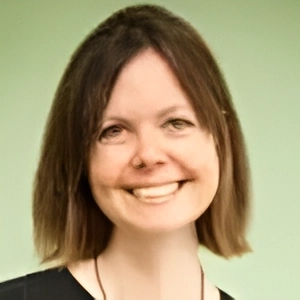The Czech Republic will hold the rotating European Union presidency from January to June 2009. While many of the issues that will be discussed over these six months are set in advance; each country that holds the presidency does have the opportunity to push issues that concern them to the forefront. We spoke with Michaela Jelínková a spokesperson with the Deputy Prime Minister for European Affairs office (the office responsible for coordinating the EU presidency) to get an idea of what the Czech Republic hopes to accomplish with its presidency.
In February 2007, the Czech government approved the motto “Europe without barriers” as the theme for their presidency. By choosing this premise, the Czechs hope to focus the discussions on barriers they feel still exist between EU member countries; as well as an expression for the EU´s openness with the rest of the world.
In formulating its policies; the Czech Republic worked closely with both France and Sweden; the countries holding the presidency before and after, respectively, the Czechs. The three countries decided on a general platform; taking into consideration the long term direction of the EU as well as international matters. Jelínková says within the Czech Republic issues were openly debated with a number of interested persons. These included Czech European Parliament representatives, regional government officials, as well experts from a range of professions, businesses and academia. The policies were chosen based on major topics and what is going on internationally.
The Czech priorities cover a range of issues. Competiveness, energy, the EU budget, agriculture and structural policies and foreign affairs including transatlantic, Balkan and Easter European relations are the major talking points. Jelínková says the three top issues are energy, EU external relations and competiveness including everything related to reducing bureaucracy, like cutting red tape for businesses.
Czech ministers have an important role to play in all this. In addition to chairing each of the meetings; they will be responsible for getting all parties involved to compromise if disputes arise; and if that isn´t possible may on occasion have to act as the decider. In the wider world; the current EU president is also responsible for negotiating with countries outside of the EU, international organizations and representing the Council of the EU within the EU body itself (i.e. in meetings with the European Parliament.)
But it´s not just government types that should be interested in the Czech presidency and the issues that will be discussed. Jelínková says that all EU countries have a small problem with communicating issues related to the EU because polls show people aren´t all that interested. The European Affairs office raised some eyebrows back in September when they began their initial advertising campaign to promote the presidency within the Czech Republic.
The “sugar cube” advertisements featuring internationally known Czechs introduced the motto “We will make it sweeter for Europe,” but in Czech the phrase has a double meaning that can be translated as we ‘will give Europe a hard time.’ Jelínková says they want people to know what´s going on and that´s why they started with this type of campaign. She says the EU leaves it up to the states to decide on their message and means of communicating it and they chose a provocative way. She believes it worked though as the most recent poll had 84% of Czechs knowing that the EU presidency will be here in January. That compares with 66% knowing back in July. Jelínková believes that as the date gets closer and people learn more about the issues that the Czechs will be tackling the interest will grow.
Jelínková says at the end of it all they would like to see Czechs proud of their country.
“This is a country where people were listening to Radio Free Europe illegally 20 years ago and now it´s a country that heads the EU and has a reputation as one who leads human rights and democracy issues around the world,” she says. “This is a historical opportunity for the country.”
Pictured at top: a screengrab from the official presidency TV spot. You can view the video in full here.












 Reading time: 3 minutes
Reading time: 3 minutes 























